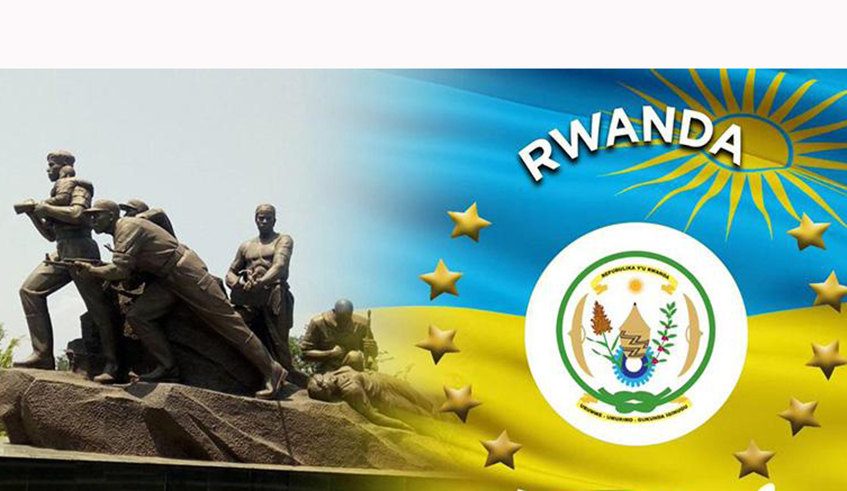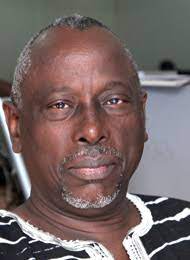

Tomorrow July 1, Rwandans will mark Independence Day and three days later Liberation Day. Both are significant in the history of this country.
The first was to free us from colonial rule. But that freedom can be said to have been stillborn and in the three decades that followed the country appears to have stood still or even gone backwards.
In place of liberty we got repression. Where we should have been united, divisions appeared and grew wider. Instead of progress, we marked time and in many ways became stunted – physically, morally and diplomatically.
Clearly another liberation was necessary. And so twenty six years ago this week, Rwandans accomplished what should have happened thirty two years earlier. They got genuine liberation which will be celebrated on Saturday July 4.
Since that date in 1994, this country has made up for lost time and registered significant progress way beyond the expectations of many and the wishes of some.
And as President Paul Kagame never ceases to remind us, and every Rwandan knows, all that has been achieved through hard work, consistency and making the right choices.
It has been possible because of clarity of vision, discipline and insistence on accountability.
But they can also be undone if Rwandans take their eyes off the ball or allow other circumstances to dictate, or even let the baser instincts of some individuals to take hold.
The last few months have shown how emergencies of every kind can easily wash away many achievements if people lose focus, do not act swiftly or lack plans that can be quickly put into operation for their mitigation.
Even the most advanced countries are vulnerable to emergencies like Covid-19.
While emergencies can and have wreaked havoc in many countries, this period has also shown that they can be managed, with a certain level of preparedness and ability to quickly marshal the required logistics.
Of course, they will slow down progress but the danger of total destruction can be averted. This is a crucial lesson learnt from the liberation struggle and the rebuilding of the country.
President Kagame again constantly alerts Rwandans to another potential danger: the country’s geographical location. Rwanda is landlocked and its exports and imports must go through other countries and are susceptible to unforeseen changes and emergencies as we have seen with Covid-19.
The way different actors along these routes deal with it also affects the movement of goods.
When situations like these develop, dealing with them requires extra-ordinary patience, exceptional capacity to control emotions and high level negotiation skills. But even with these, geography-induced vulnerability still exists. Managed poorly we could find our gains wiped out.
Handled with sensitivity, goods and trade will continue to flow.
The other danger to the achievements that have been made is in a sense self-inflicted and can be avoided but sadly not always successfully. Corruption – the very name feels slimy, sounds ugly, smells fishy, and has rot written all over it, but somehow is irresistible.
It is so morally repulsive that no self-respecting individual would want to be associated with it. Yet many get caught in its pull.
Again Rwandans have been warned about the dangers of corruption. Every school child knows how horrible it is. Religion reinforces its representation as evil by listing its many manifestations among sins that could deny one eternal glory. Still, people cannot resist it.
In Rwanda corruption takes different forms, many of which have been catalogued by the Ombudsman and Transparency International - Rwanda. We will not list all of them here. A few will suffice.
There is, for instance, the old-fashioned bossism where the boss throws their weight around and lesser mortals must carry out their command even when not expressly given. The good subordinate must learn to read the boss’ unstated instructions.
It is a survival skill they must learn in order to keep their jobs and have hopes of advancing.
A lucrative and fairly common way seems to be through the manipulation of procurement processes. The smart (or crooked) public service officer takes advantage of loopholes in the procedures and hopes that no one will notice.
Often this takes the form of collusion between public sector employees and owners of businesses in the private sector.
Now we learn that this collusion has been taken to another level where public sector officials do more work for private businesses at the expense of their public office for which they are custodian and paid for.
Emergencies can be mitigated. Issues resulting from geography can be negotiated. Corruption that grows from within is a little more dangerous but can also be fought.
Good religious people regularly renew their vows to lead righteous lives. President Kagame has repeatedly asked public servants to renew their commitment to serve the nation and adhere to those principles that have brought the country this far.
This same call must be in Rwandans’ minds as we celebrate twenty-six years of liberation. Nothing, even an enemy from within, should be allowed to derail the progress we have made.
The views expressed in this article are of the author.


